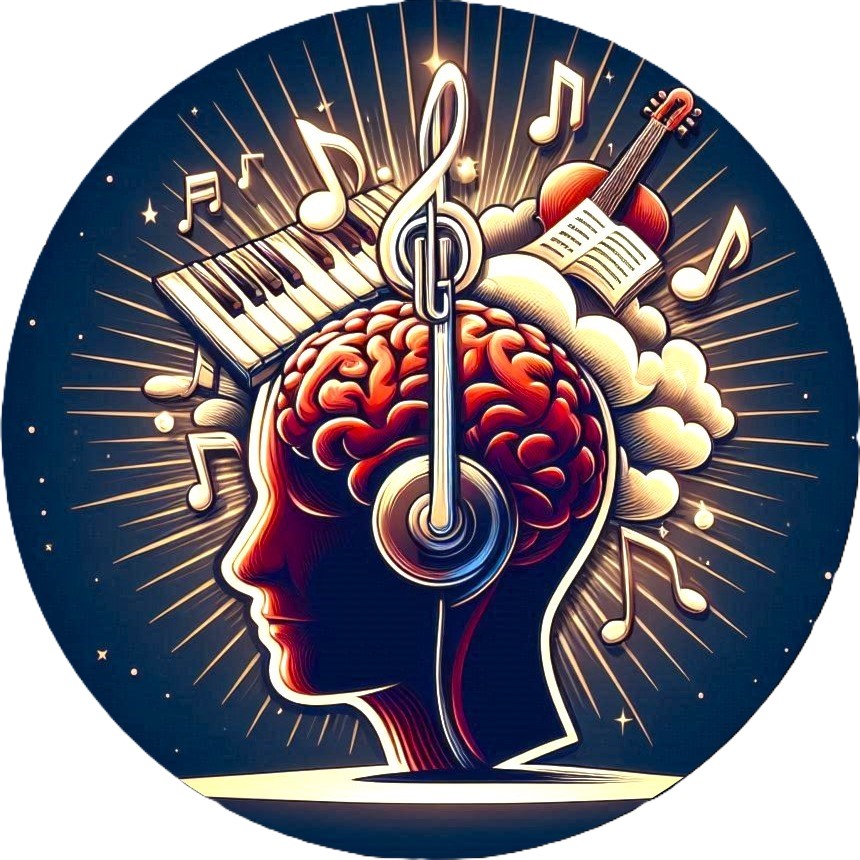Music possesses an extraordinary power to move us, evoke emotions, thoughts, and actions in ways that mere words often struggle to achieve. For some, this connection to music transcends simple enjoyment; it becomes the primary lens through which they perceive and interact with the world. This is where Musical Intelligence, as defined in Howard Gardner’s Theory of Multiple Intelligences, shines. It’s the ability to recognize, create, and deeply appreciate rhythm, melody, and the nuances of sound. Just like other forms of intelligence, Musical Intelligence empowers individuals to unlock their potential by harnessing their talents in ways that resonate with their innate strengths.

Life wouldn’t be complete without music, would it?
The most obvious examples are the singers and musicians we admire on music shows, media platforms, and social networks, captivating millions with their extraordinary musical talents.
- Mỹ Tâm, Vietnam’s beloved “Brown-Haired Nightingale,” is a living testament to the power of passion and dedication in music. With her powerful voice and captivating stage presence, Mỹ Tâm has won the hearts of millions of fans over two decades. She not only composes and performs songs that touch hearts but also exemplifies perseverance and relentless effort in perfecting her craft and contributing to the arts. Mỹ Tâm proves that talent and sincerity can overcome any obstacle, inspiring young people to dare to dream and pursue their own musical paths.

My Tam – The “beautiful bigger sister” singer of Vietnamese music
- The English singer-songwriter Ed Sheeran is renowned for his remarkable ability to blend heartfelt lyrics with enchanting acoustic melodies. His musical storytelling prowess shines through in hits like “Shape of You” and “Perfect,” captivating audiences worldwide. Sheeran’s songwriting skills, rhythmic guitar playing, and use of loop pedals to create intricate soundscapes during live performances highlight his extraordinary musical intelligence. His journey from busking on the streets to global stardom is a testament to his hard work, resilience, and creativity, encouraging young musicians to chase their dreams.

“Artist of the decade” England – Singer Ed Sheeran
- Taylor Swift, an icon of creativity and constant evolution in American pop music, started her career in country music and has fearlessly explored various genres, from pop and rock to alternative. Beyond her beauty, Taylor possesses a keen sense of trend, the ability to write profound lyrics and captivating melodies, making her one of the world’s most successful artists. She not only tells stories of love but also shares personal experiences, inspiring millions of young people to be true to themselves and pursue their passions.

“Country Music Princess” of the US – Taylor Swift
Ed’s poetic songwriting, Mỹ Tâm’s powerful vocals, and Taylor Swift’s dynamic style are just a few examples of individuals who possess high Musical Intelligence and have achieved resounding success. These artists inspire young people not only through their music but also through their creative approaches and self-expression.
Characteristics of Musical Intelligence
Musical Intelligence manifests in various ways, from a heightened sensitivity to sound to an intuitive grasp of rhythm and melody.
- Sensitivity to Sound: Individuals with high Musical Intelligence can effortlessly distinguish between different pitches, rhythms, and tones. They possess a keen ear for musical details and can often replicate or create complex musical patterns with ease, even after hearing them only once. This sensitivity extends beyond music, as they tend to perceive the world through auditory cues more acutely than others.
- Pattern Recognition: Those with a musical mind excel at recognizing patterns in sound, whether it’s the structure of a song, the rhythm of speech, or the flow of movement. This ability to identify patterns can also enhance learning, enabling them to retain information more effectively by associating it with rhythm or melody.
- Musical Aptitude: From classical compositions to modern hits, individuals with high Musical Intelligence tend to appreciate a broad spectrum of music. While others may gravitate towards specific genres like Pop, Ballad, Rock, or even symphonies, those with high Musical Intelligence find something to enjoy in most types of music. This deep connection to music fosters a greater attunement to their emotions and allows them to communicate creatively through sound.

Happiness is to pursuing your passion. And it’s even greater when it’s your strength.
Applying Musical Thinking to Learning
Individuals with Musical Intelligence approach learning in unique ways that can enhance both their personal and academic growth.
- Grasping the Core: They often effortlessly identify the essence of any matter in everyday life, from the rhythm of footsteps to the cadence of spoken language. This ability significantly aids memory and learning, allowing them to focus on crucial information amidst complex and distracting content.
- Harmonizing with Rhythm: For those with Musical Intelligence, transforming information into melodies and rhythms facilitates easier and longer-lasting memorization. This technique proves valuable in academic settings, empowering students to leverage their natural abilities for faster comprehension of information and principles across various subjects.
- Learning Through Music: Music can also serve as a mnemonic device, reinforcing information in the brain through repetition and enjoyable melodies. This personalized and flexible learning approach encourages individuals to discover study methods that resonate most effectively with them.

Musical Intelligence also helps to develop your multidimensional capacity
Nurturing Musical Intelligence
For young individuals gifted with musical talent, it’s crucial to nurture and develop their abilities through diverse activities and opportunities.
- Listening and Exploration: Encouraging exploration and experimentation with various musical genres, instruments, and cultural traditions can broaden their understanding and activate their multifaceted potential. Through this process, they can uncover new passions and strengths, leading to holistic personal and professional development.
- Formal Training: Whether through formal lessons, school programs, or community-based activities, structured music education plays a vital role in building a solid foundation and fostering Musical Intelligence.
- Unleashing Creativity: Musical Intelligence also fuels creativity, which translates into innovative thinking across any field. By embracing their musical abilities, young talents can cultivate out-of-the-box thinking, discover unique problem-solving approaches, and express themselves more distinctly.

High Musical Intelligence enhances greatly your creativity
The Joy of Music Creation
Music is not just a learning tool but also a source of immense joy and profound personal fulfillment. Young talents can engage with music in various ways:
- Playing Instruments: Learning an instrument, whether traditional (like piano or guitar) or digital (like music production software), offers a hands-on approach to expressing Musical Intelligence. Each instrument possesses its unique charm. Playing an instrument cultivates discipline, patience, and creativity—essential skills in any professional environment.
- Singing and Songwriting: For those with a passion for writing, songwriting can be a powerful outlet for expressing emotions and narrating meaningful stories. Songwriting and performing can boost confidence and help young people find their unique voices, both literally and figuratively.
- Collaboration: There’s an undeniable magic in creating music with others, whether in a band, choir, or ensemble. Collaboration enhances teamwork and communication skills, contributing to building professional networks and fostering effective collaboration within teams and organizations.
Creativity Boundary-Free and Beyond
The value and power of Musical Intelligence extend far beyond music itself; it fosters the development of highly valuable skills across various domains.
- Mathematics and Logic: Scientific research has established a strong correlation between musical aptitude and mathematical thinking. For instance, individuals who can grasp rhythm in certain music genres often exhibit a natural understanding of mathematical concepts like spatial geometry, ratios, and probabilities.
- Empathy and Understanding: Music is the language of emotions, and those with Musical Intelligence often possess heightened empathy and emotional understanding. This skill is invaluable in any profession, particularly in leadership, teaching, or therapeutic roles.
- Career Paths: Musical Intelligence can lead to diverse and unexpected career paths, from composing and sound engineering to music therapy and education. In the business world, many successful CEOs and entrepreneurs harbor a deep passion for art and music. They often excel in creating innovation and differentiation in business operations and marketing communications. Spotify, one of the world’s most popular music platforms, exemplifies a creative and valuable business model for listeners.

Shine brightly and maximize your potential
Musical Intelligence is more than just an good ear for music – it’s a way of thinking, learning, and expressing oneself that can transform both personal and professional lives. For young talents participating in the Internship of Excellence Program (IEP) at OKR.BUSINESS, this serves as a tremendous inspiration for the IEP team to guide them in exploring and nurturing their intelligence. We aim to help young individuals discover and develop their musical abilities, opening doors to a creative career or leveraging their Musical Intelligence to gain a personal advantage and excel in various fields, fostering their potential and inspiring them to reach new heights.





